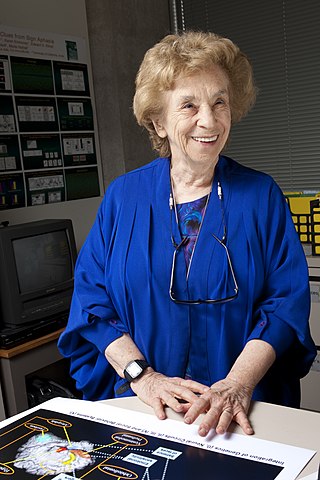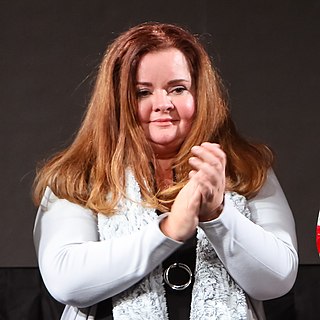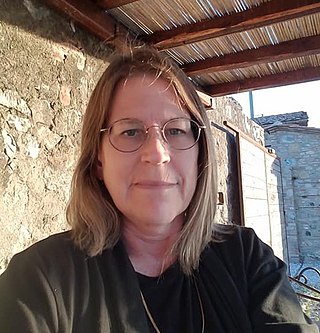Related Research Articles

The American Association for the Advancement of Science (AAAS) is an American international non-profit organization with the stated goals of promoting cooperation among scientists, defending scientific freedom, encouraging scientific responsibility, and supporting scientific education and science outreach for the betterment of all humanity. AAAS was the first permanent organization to promote science and engineering nationally and to represent the interests of American researchers from across all scientific fields. It is the world's largest general scientific society, with over 120,000 members, and is the publisher of the well-known scientific journal Science.

The MIT Press is a university press affiliated with the Massachusetts Institute of Technology (MIT) in Cambridge, Massachusetts. The Press has been a pioneer in the Open Access movement in academic publishing and publishes a number of academic journals. The organization also operates the MIT Press Bookstore, which is one of the few retail bookstores run by a university publisher.

Fellowship of the American Association for the Advancement of Science (FAAAS) is an honor accorded by the American Association for the Advancement of Science (AAAS) to distinguished persons who are members of the Association. Fellows are elected annually by the AAAS Council for "efforts on behalf of the advancement of science or its applications [which] are scientifically or socially distinguished".

Patricia Goldman-Rakic was an American professor of neuroscience, neurology, psychiatry and psychology at Yale University School of Medicine. She pioneered multidisciplinary research of the prefrontal cortex and working memory.
Rachel Wilson is a professor of neurobiology at Harvard Medical School and is a Howard Hughes Medical Institute Investigator. Wilson's work integrates electrophysiology, neuropharmacology, molecular genetics, functional anatomy, and behavior to explore how neural circuits are organized to react and sense a complex environment.

Ursula Bellugi was an American cognitive neuroscientist. She was a Distinguished Professor Emerita and director of the Laboratory for Cognitive Neuroscience at the Salk Institute in La Jolla, California. She is known for research on the neurological bases of American Sign Language and language representation in people with Williams Syndrome.
Thomas S. Kilduff is an American neuroscientist and the director of SRI International's Center for Neuroscience. He specializes in neurobiology related to sleep and wakefulness, and was involved in the discovery of hypocretin, a neuropeptide system that is highly involved in wakefulness regulation.
James O. McNamara is an American neurologist and neuroscientist, known for his research of epileptogenesis, the process underlying development and progression of epilepsy. He is the Duke School of Medicine Professor of Neuroscience in the Departments of Neurobiology, Neurology, and Pharmacology and Cancer Biology at Duke University. He served as chair of the Department of Neurobiology at Duke from 2002 to 2011

BethAnn McLaughlin is an American neuroscientist, activist, and hoaxer. She is a former assistant professor of neurology at Vanderbilt University. Her research at Vanderbilt focused on neural stress responses and brain injury. After being denied tenure in 2017, she sought to have the decision overturned. The decision to deny tenure was upheld, and her employment at Vanderbilt ended in July 2019.
Carol Ann Mason is a Professor of Pathology and Cell Biology at Columbia University in the Mortimer B. Zuckerman Mind Brain Behavior Institute. She studies axon guidance in visual pathways in an effort to restore vision to the blind. Her research focuses on the retinal ganglion cell. She was elected a member of the National Academy of Sciences in 2018.
HollisT. Cline is an American neuroscientist and the Director of the Dorris Neuroscience Center at the Scripps Research Institute in California. Her research focuses on the impact of sensory experience on brain development and plasticity.

Elba E. Serrano is a neuroscientist and biophysicist who holds a position as a Regent's Professor of Biology at New Mexico State University.
Marlene R. Cohen is a neuroscientist at the University of Pittsburgh and an Associate Director of the Center for the Neural Basis of Cognition, a joint venture between the University of Pittsburgh and Carnegie Mellon University. Her team investigates how visual information is encoded in groups of neurons and used to guide behavior. She is recognized for pioneering use of multielectrode array recording to determine that the improved behavioral performance associated with redirecting spatial attention has a neural correlate in the brain that is reflected by reduced correlated activity between neurons. Cohen has also demonstrated that this same mechanism happens during learning. She has received several awards for her work, including the Troland Research Award from the National Academy of Sciences in 2018
Joshua R Sanes is an American neurobiologist who is known for his contributions to the understanding of synapse development. Throughout his career, Sanes has been the recipient of various awards and honors, including membership to the U.S. National Academy of Sciences. His research involves an interdisciplinary approach which focuses mainly on the formation of synapses at the neuromuscular junction by combining the sciences of psychology, chemistry, biology, and engineering to study these circuits and employ molecular and genetic imaging to understand their function. Sanes currently lives in Boston, Massachusetts with his wife, Susan, and their two children.
Lauren Orefice is an American neuroscientist and assistant professor in the Department of Molecular Biology at Massachusetts General Hospital and in the Department of Genetics at Harvard Medical School. Orefice has made innovative discoveries about the role of peripheral nerves and sensory hypersensitivity in the development of Autism-like behaviors. Her research now focuses on exploring the basic biology of somatosensory neural circuits for both touch and gastrointestinal function in order to shed light on how peripheral sensation impacts brain development and susceptibility to diseases like Autism Spectrum Disorders.

Sarah L. Pallas is an American neuroscientist and a Professor of biology at the University of Massachusetts Amherst. She is a fellow of the American Association for the Advancement of Sciences (AAAS) known for her cross-modal plasticity work and map compression studies in the visual and auditory cortical pathways.
Susan Ellen Shore is an American audiologist who is the Merle Lawrence Collegiate Professor of Otolaryngology at the University of Michigan. She was elected Fellow of the American Association for the Advancement of Science in 2021.
References
- ↑ "Eppendorf & Science Prize for Neurobiology". Science | AAAS. 2017-09-13. Retrieved 2018-10-23.
- ↑ "Eppendorf & Science Prize for Neurobiology". Science | AAAS. 2017-09-13. Retrieved 2018-10-23.
- ↑ "2019 Eppendorf Prize Winners". Science | AAAS. 2019-10-03. Retrieved 2020-04-21.
- ↑ "2019 Eppendorf Prize Winners". Science | AAAS. 2019-10-03. Retrieved 2020-04-21.
- ↑ "2019 Eppendorf Prize Winners". Science | AAAS. 2019-10-03. Retrieved 2020-04-21.
- ↑ "Johannes Kohl Wins 2018 Eppendorf & Science Prize". American Association for the Advancement of Science. Retrieved 2018-10-23.
- ↑ "How the brain helps us act like parents". Newsweek. 2018-10-11. Retrieved 2018-10-23.
- ↑ "Johannes Kohl Wins 2018 Eppendorf & Science Prize". American Association for the Advancement of Science. Retrieved 2018-10-23.
- ↑ "Johannes Kohl Wins 2018 Eppendorf & Science Prize". American Association for the Advancement of Science. Retrieved 2018-10-23.
- ↑ "Prizes". Science | AAAS. Retrieved 2018-10-23.
- ↑ "Prizes". Science | AAAS. Retrieved 2018-10-23.
- ↑ "Prizes". Science | AAAS. Retrieved 2018-10-23.
- ↑ "Prizes". Science | AAAS. Retrieved 2018-10-25.
- ↑ "Prizes". Science | AAAS. Retrieved 2018-10-25.
- ↑ "Prizes". Science | AAAS. Retrieved 2018-10-25.
- ↑ "2013 Eppendorf prize winners". Science | AAAS. 2018-02-16. Retrieved 2018-10-25.
- ↑ "2013 Eppendorf prize winners". Science | AAAS. 2018-02-16. Retrieved 2018-10-25.
- ↑ "2013 Eppendorf prize winners". Science | AAAS. 2018-02-16. Retrieved 2018-10-25.